FBI chief: Apple issues are hardest he's seen in government
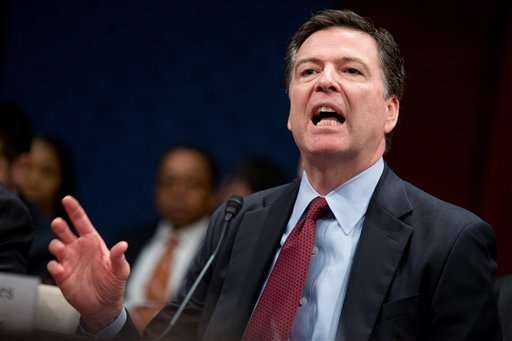
The policy issues raised in the Justice Department's dispute with Apple Inc. over a locked iPhone represent the "hardest question I've seen in government, and it's going to require negotiation and conversation," FBI Director James Comey said Thursday in defending the government's demand for the tech company to help access the device.
"I do think the larger question is not going to be answered in in the courts, and it shouldn't be. Because it's really about who do we want to be as a country, and how do we want to govern ourselves," Comey told the House Intelligence Committee.
A week ago, a federal magistrate in California directed Apple to help the FBI hack into a phone used by one of the assailants in the December shootings in San Bernardino, California. Apple was expected to file a formal objection on Friday. A magistrate judge in Brooklyn is weighing a similar Justice Department request in a separate case, and a decision is expected soon.
Days after making his first public statement on the matter in an Internet blog post, Comey appeared determined to tamp down the tension that has flared publicly between the government and the company in the week since the judge's order. He acknowledged at one point that Apple had been very helpful in the months leading up to the court clash and said that there were "no demons" in the debate.
He also conceded the benefits of encryption but said the FBI would continue to need the ability—through a warrant and court order—to intercept encrypted communications in criminal and terrorism investigations.
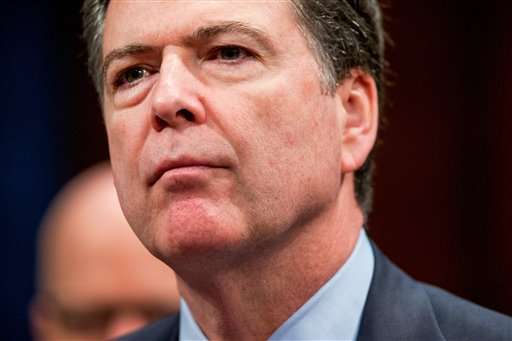
"If we're going to move to a world where that is not possible anymore, the world will not end—but it will be a different world than where we are today and where we were in 2014," he said. "So we just need to make sure that the bureau explains what the costs are so that people don't look at us five years from now and say, 'Where were you guys when this happened?'"
Comey reiterated what he posted in a statement Sunday night—that the Justice Department was not trying to send a message or set a precedent by going to court to obtain access to the phone. Instead, he said, the government owes it to the families of the 14 victims in the San Bernardino shootings to pursue every investigative lead that it can.
"We think we have to follow that lead. This is a live investigation, and it's hard to imagine a circumstance in which our work is more important than this," Comey said in an afternoon appearance before the House Appropriations Committee.
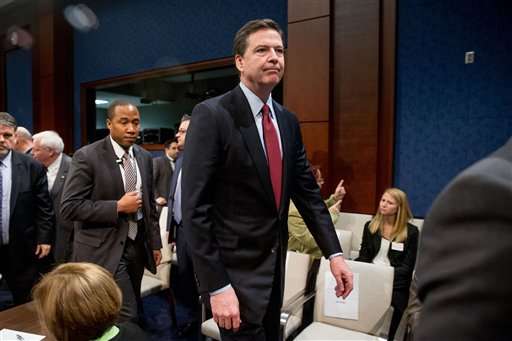
Comey said there had been "plenty" of negotiations with Apple before the government sought the judge's order. But at some point, Apple reached a point at which it was not willing to "offer the relief the government was asking for."
Apple has made clear it has no intention of complying. The company's chief executive, Tim Cook, told ABC News that it would be "bad for America" if his company complied with the FBI's demand and said he is prepared to take the fight to the Supreme Court.
Apple has said Congress, not the courts, should resolve the dispute. House Minority Leader Nancy Pelosi, a California Democrat, signaled Thursday that she is eager for Congress to take up the matter.
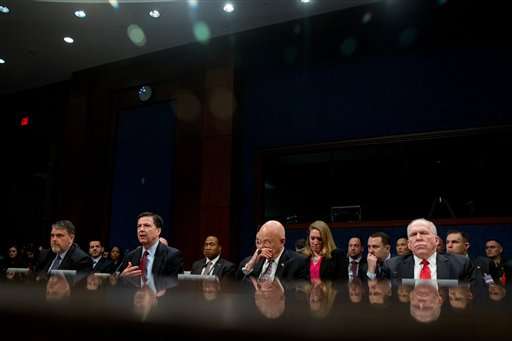
"I don't think it should be up to one judge to decide on the encryption policy as we go forward. This is not about one case," Pelosi said.
Comey acknowledged that last week's order from Magistrate Sheri Pym could help guide other courts considering the same issue in the future. But he rejected Apple's assertion that the creation of the software in this one case could create a slippery slope affecting millions of other iPhone users, as Apple has maintained.
Comey said he had been told by technology experts that the combination of the phone and operating system are "sufficiently unusual that it's unlikely to be a trailblazer because of technology being the limiting principle."
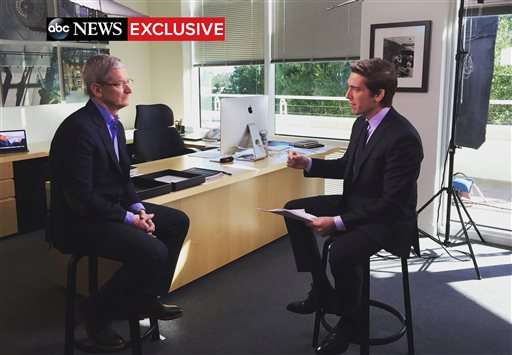
Apple has argued that creating the software would make other iPhones more susceptible to hacking by authorities or criminals in the future. Comey insisted that the code the FBI was asking Apple to create would work only on that one phone and would be retained by Apple.
"The idea of it getting it out in the wild and working on my phone or your phone—at least the experts tell me—is not a real thing," he said.
© 2016 The Associated Press. All rights reserved.




















